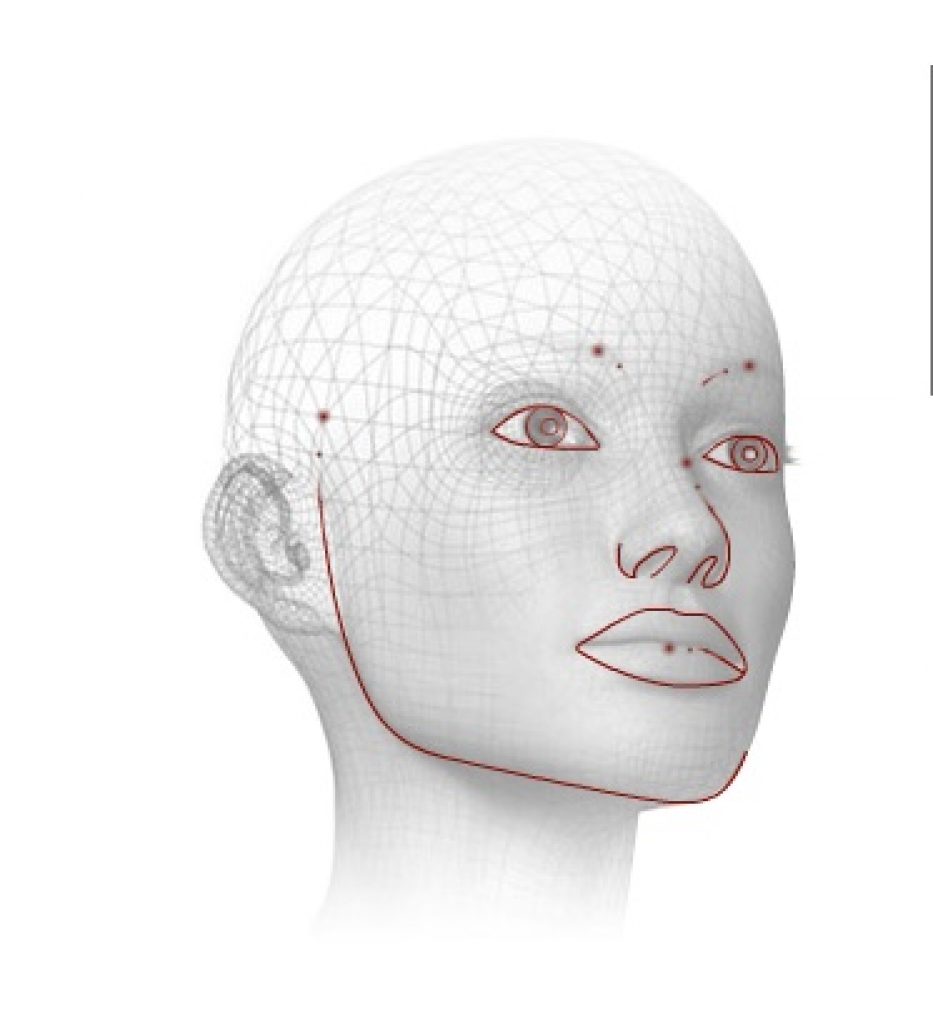Speaking of face-related embedded vision topics…a month back, I told you how smartphone-based software was being used to make makeup suggestions. And ten months ago (for example), I told you about revolutionary techniques being employed to improve face recognition accuracy. Do you think I can link these two themes? Of course I can…with a little help from the editorial staff at IEEE Spectrum.
Earlier today, I saw a short-but-sweet writeup from editor Tekla Perry, about a France-based startup called Vesalis. Perry had recently interviewed CEO Jean-Marc Robin, whose original application focus for the company's face algorithm technology was the beauty industry, because (this is so classic) "I love women." (I concur with Perry's suggestion, "that phrase in quotes should be read with a French accent if at all possible.")
Part of Vesalis' implementation plan was to project photographs of shoppers' faces onto built-in displays in sales kiosks, where the potential customers could then "apply" virtual "makeup" and see how it looked prior to hopeful-to-retailer purchase. But the other part of the plan is what caught security companies' eyes. Here's how Perry explains it:
It’s the video streams that, in the envisioned department store application, would come from existing security cameras that has them intrigued. In department stores, Vesalis’ software compares these relatively low quality images against a database of existing customers: When the system spots a known customer coming into the store, it sends an alert to an iPad carried by a salesperson. The salesperson can then quickly look at the customer’s picture, previous order history, and other information, greet the customer by name and perhaps suggest sale or other items she might be interested in.
The combination of low-quality source material and high-quality recognition match results is what's got folks excited. More from Perry:
The French government invested €2 million in the company in 2009, and this past October, Vesalis tested its technology during a soccer game at the Parc des Princes, the largest soccer stadium in France. The system checked 20 000 people every 20 minutes against a database of 500 problem individuals and had an accuracy rate of 98 percent; competitive technology, said Michael Vannier, Vice President of U.S. Sales, has had an accuracy rate of 61 percent in similar tests.
Viva la face detection revolution!


